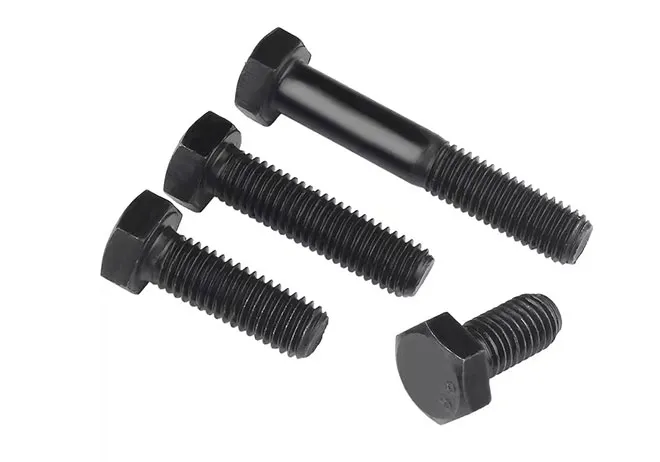Stud Bolt and Nut Manufacturing Facilities and Their Importance in Industrial Applications
Nov . 30, 2024 18:14 Back to list
Stud Bolt and Nut Manufacturing Facilities and Their Importance in Industrial Applications
The Importance of Stud Bolt and Nut Factories in Modern Manufacturing
In the intricate web of modern manufacturing, the significance of seemingly small components is often overlooked. Among these, stud bolts and nuts play a crucial role in the assembly and integrity of structures across various industries, including construction, automotive, aerospace, and machinery. Stud bolt and nut factories have therefore become essential hubs of innovation, quality control, and technological advancement, ensuring that industries can rely on robust and durable fastening solutions.
The Role of Stud Bolts and Nuts
Stud bolts are elongated fasteners that are threaded on both ends, designed to be inserted into a threaded hole or used in conjunction with nuts to secure components together. Nuts, on the other hand, are hexagonal pieces of metal with a hole in the center that allows them to engage with the threads of a stud bolt. Together, these two elements form a reliable fastening system capable of withstanding significant loads and stresses.
In sectors like construction, the integrity of buildings and infrastructure relies heavily on these fasteners. They are used in critical applications such as securing steel beams, reinforcing concrete structures, and assembling heavy machinery. In the automotive industry, stud bolts and nuts are vital for ensuring the safety and performance of vehicles by holding essential components together, from the engine to the suspension system.
Manufacturing Processes and Technologies
The process of manufacturing stud bolts and nuts is a complex interplay of raw materials, engineering, and technology. Factories typically begin by selecting high-quality steel or alloy materials that can withstand corrosion and mechanical stress. Advanced techniques such as cold heading, threading, and heat treatment are employed to produce standardized or custom-designed fasteners.
stud bolt and nut factories

Modern factories increasingly utilize automated processes and robotics to enhance efficiency and precision. Computer Numerical Control (CNC) machines play a significant role in ensuring that each component meets strict dimensional tolerances, which is critical for maintaining the safety and durability of fastening systems. Moreover, factories are adopting quality assurance methods such as ultrasonic testing and magnetic particle inspection to detect material defects and ensure the performance of each product.
Sustainability and Innovation in Fastener Manufacturing
As concerns regarding environmental sustainability grow, stud bolt and nut factories are also making strides toward eco-friendly manufacturing practices. This includes the implementation of recycling programs for scrap metal, using sustainable energy sources, and reducing waste during production processes. Innovations in materials science have led to the development of stronger, lighter alloys that not only enhance performance but also contribute to reducing the overall carbon footprint of manufactured products.
Global Trade and Market Dynamics
The global demand for stud bolts and nuts continues to rise, driven by ongoing industrialization and infrastructure development across emerging economies. Factories not only cater to domestic markets but also export their products worldwide, encountering diverse regional standards and regulations. This globalization presents both challenges and opportunities; factories must not only focus on production efficiency but also adaptability to meet varied customer requirements and compliance with international standards.
Conclusion
Stud bolt and nut factories are the backbone of modern manufacturing, providing essential components that ensure the safety and functionality of countless products and structures. As industries evolve, these factories must leverage technological advancements and sustainable practices to enhance their operational efficiency and product quality. The constant pursuit of innovation and excellence will enable them to meet the growing demands of a fast-paced, globalized market. By recognizing the importance of these seemingly small components, we can appreciate the intricate and robust systems that underpin our everyday lives and the essential role of stud bolt and nut factories in making that possible.
Latest news
-
High-Quality Panel Stud Bolt Reliable Panel Stud Bolt Factory & Suppliers
NewsJul.08,2025
-
High-Precision Fine Thread Locknuts Manufacturer & Supplier Custom Solutions
NewsJul.08,2025
-
PH Imperial Stud Bolt – High Strength Fasteners from Leading Supplier & Factory
NewsJul.07,2025
-
High-Quality Allen Wrench Bolts Leading Factory, Company & Suppliers
NewsJul.07,2025
-
Wholesale Ball Stud Bolt - High Quality Supplier & Factory Price Reliable Wholesale Ball Stud Bolt Company
NewsJul.06,2025
-
High-Strength Alloy Bolts Manufacturer & Supplier Quality Alloy Fasteners Factory
NewsJul.06,2025
